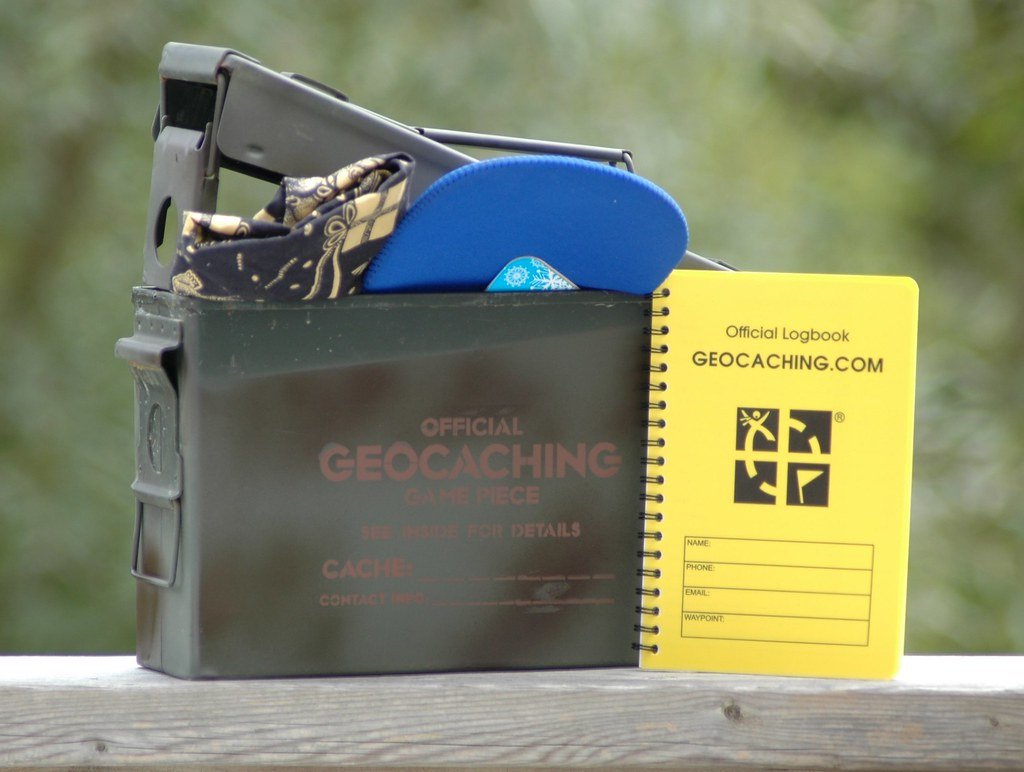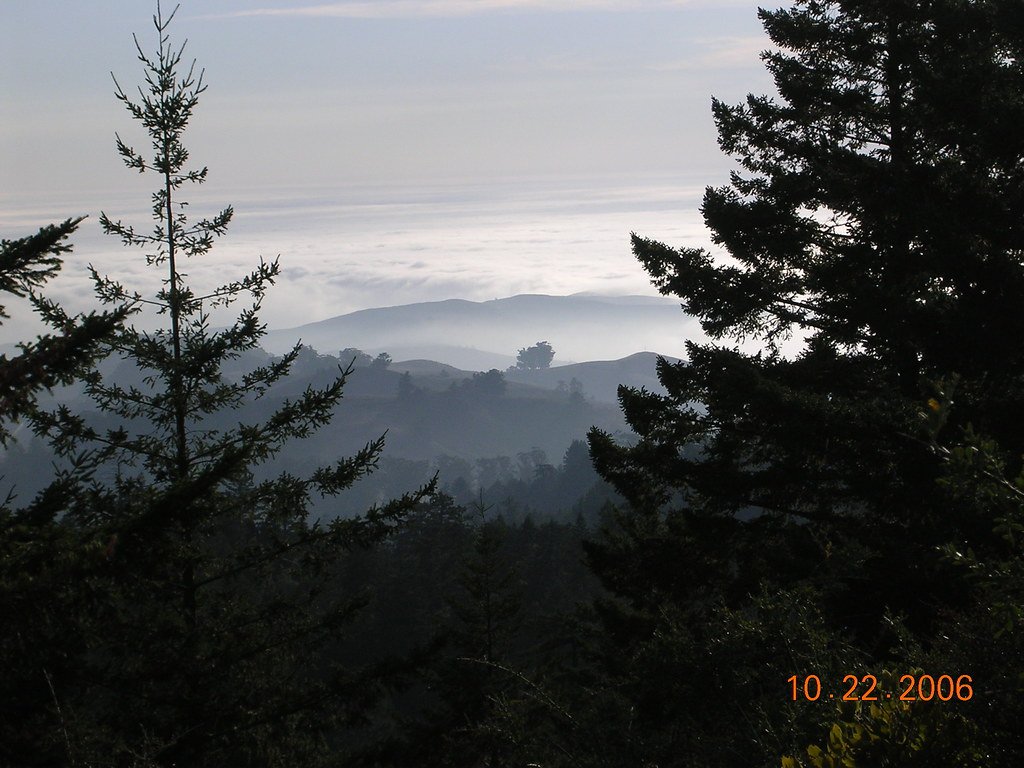Geocaching is the world’s greatest treasure hunt. With both treasure-hiders and adventurous seekers, the hobby of geocaching takes participants on immersive adventures all around the world.
Geocache with accompanying logbook. Cachemania. BY CC-SA 2.0.
Geocaching is an outdoor hobby that allows participants of all ages to use geographic positioning system (GPS) technology to locate small boxes of treasure while exploring new outdoor areas. Composed of both hiders—those who create caches and stash them somewhere—and seekers—those who use GPS technology to locate the caches—geocaching becomes the world's biggest game of hide and seek, allowing for outdoor adventure along the way.
National Geographic states the activity began in 2000, when a small group of people from Oregon who were “interested in technology and geography” turned the idea of hiding caches into a game. Now, there are a plethora of online databases full of GPS coordinates made available to desiring participants, either for free or through registration, which can be placed into a geocaching app or hand-held GPS and guide seekers to stashes. Expanding past Oregon and now being hosted in 191 different countries, geocaching is now a world-wide activity being played by over 3 million people.
Hand-held GPS. Johan Larsson. CC BY 2.0.
Inside caches, a bunch of different things can be found. Small trinkets, figurines and toys are very commonly stashed in geocaches. Additionally, it is good geocaching practice if seekers who find treasures add a bit of their own, taking one part of the cache and replacing it with their own treasure. This keeps the game alive and allows multiple seekers to find the same cache, while simultaneously having a unique experience from everyone else because they will find a new treasure every time. There are extreme circumstances where seekers will find coins, tokens and even dollar bills, but typically, treasures are not very valuable. This also helps prevent people from finding geocaches for the sake of monetary gain, which would ruin the communal, adventurous nature of the game.
Treasure from a cache. Dave. CC BY-NC-SA 2.0.
Those who choose to look for caches need the same basic equipment. Either a smartphone (with the downloaded Geocaching app) or a handheld GPS which can be bought on the internet is necessary to participate in geocaching. After that, all a seeker needs is coordinates from a geocache database and a free afternoon. Most seekers will find themselves hiking through woods, up hills and mountains, and immersing themselves in their local area on the way to their cache’s location. Many times, hiders will specifically place caches in areas that take seekers by camping grounds where they can rest after a day of hunting, a cool outlook where they can enjoy their treasures or spots not commonly explored in the woods or other local terrains.
View from a set of geocache coordinates. Bob n Renee. CC BY 2.0.
For those wanting to be a hider, the game gets a bit more complicated. Because the hiders dictate the coordinates, they also subsequently dictate the adventure that the seeker will go on. However, there are rules to the ways geocaches can be hidden and where. Not only do they have to obey trespassing and property laws, but they have to respect their surrounding environment. They cannot disturb plant or animal life, they must be accessible to seekers, and the box must be weatherproof for when it rains.
Further, boxes cannot have perishable items inside, as they may pose a harm to those who find them. Finally, each cache typically has a logbook, which allows seekers to mark their find by writing their name. This is recommended because seekers and hiders alike can see how many other people have experienced the same treasure hunt.
Geocaching, although for everyone of all ages, is popular amongst younger people. Children love to geocache, and commonly groups of boy scouts and girl scouts will make camping trips and adventures out of it, especially when caches are located near campsites and in the woods. However, because geocaching has become a global game, anyone with the app and some spare time can experience the adventure. Travelers in new areas find geocaching can be a really great way to see a new local area. Porthole Cruise and Travel says geocaching is great for “road trips and day trips,” because it allows for travelers to experience more of their new area.
Geocaching is a great pastime for all ages and for travelers trying to fully experience new areas, and, what makes it even better is the fact that it is a mostly free hobby.is cheap, fun for everyone who wishes to participate and a great way to find new adventures with friends and family in your own town or ones you visit in the future.
Ava Mamary
Ava is an undergraduate student at the University of Illinois, double majoring in English and Communications. At school, she Web Writes about music for a student-run radio station. She is also an avid backpacker, which is where her passion for travel and the outdoors comes from. She is very passionate about social justice issues, specifically those involving women’s rights, and is excited to write content about social action across the globe.





